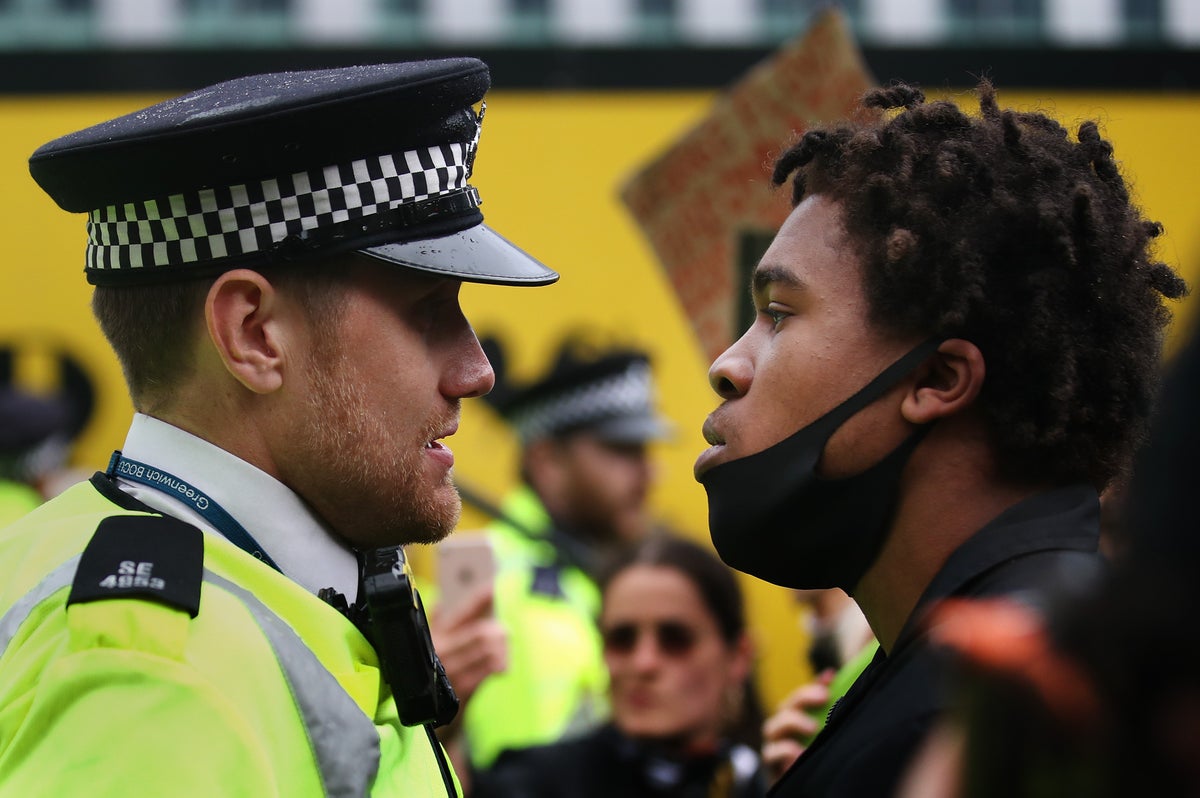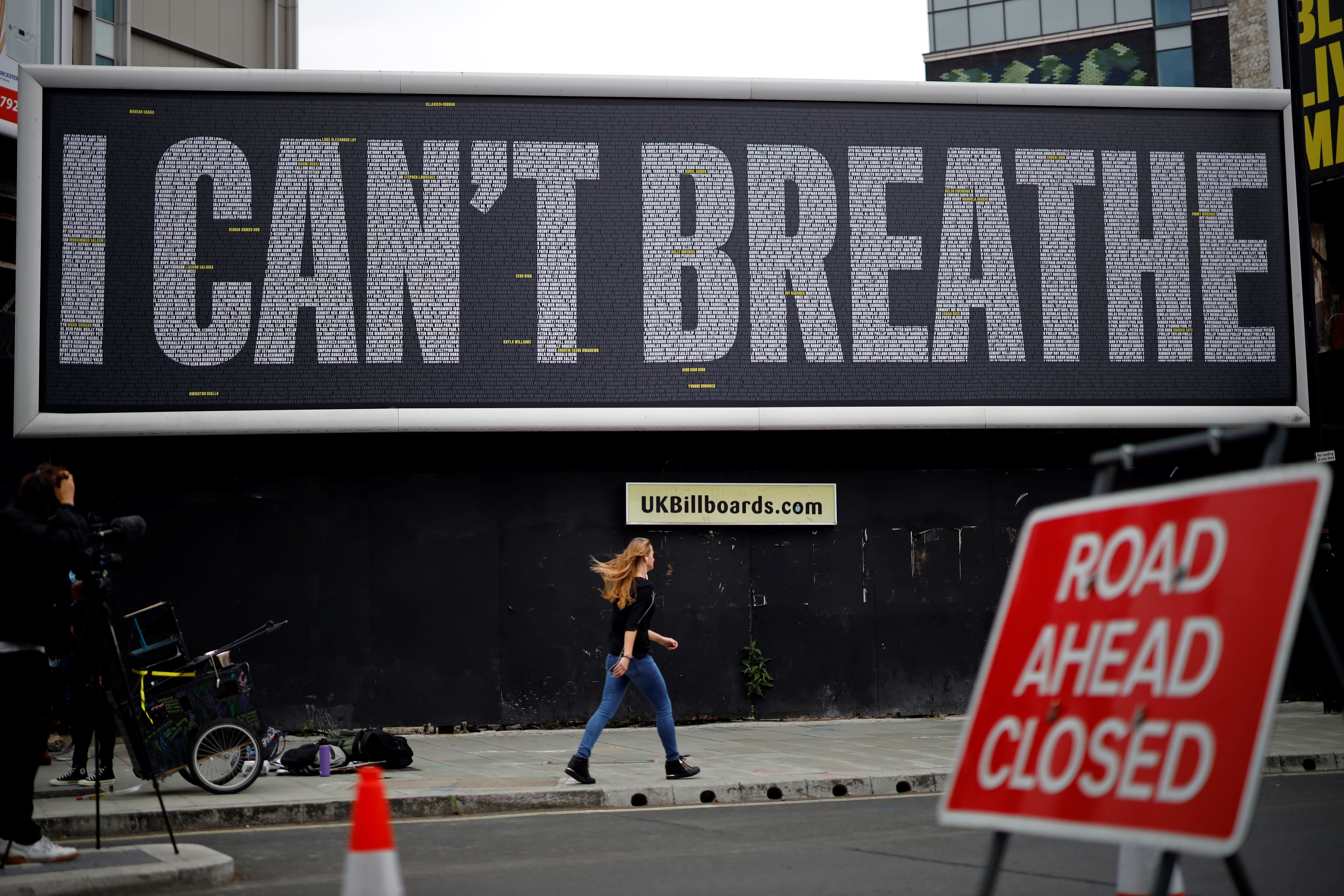
Black people are seven times more likely to die following police contact but no officers involved in such cases have ever been prosecuted for racism, new data analysis has revealed.
The huge disparity has previously been downplayed by the UK government and was uncovered by Inquest, a charity that supports bereaved families who have lost loved ones following contact with the state.
In a report published on Monday, ‘I can’t breathe’: Race, death and British Policing, the charity found that racism was being ignored as a potential factor in the deaths of Black men by police by the Independent Office for Police Conduct (IOPC), coroners and the Crown Prosecution Service.
Meanwhile, the deaths of Black men after police contact continues at disproportionately high levels, with such as Chris Kaba, Oladeji Omishore, and Godrick Osei recently hitting headlines.
Deborah Coles, director of Inquest, said the evidence was “stark”.
“Deeply rooted patterns of systemic racism, across police forces and across time, are resulting in disproportionate numbers of deaths of Black men following the use of restraint,” she said.
“Investigation and oversight bodies are failing to examine the potential role of race and racism in deaths involving police. This renders racism invisible in the official narratives and prevents justice, accountability and change.
“Now is a time of intense scrutiny on policing, yet politicians from across the political spectrum are not responding to the evidence. Institutional racism is embedded in police culture and practice which equates Black men with dangerousness and criminality.”
In 2021, the Home Office claimed that Black men were not more likely to die in custody cases where the use of force or restraint is present.
However, Inquest found the government’s data was misleading because some deaths in custody involving restraint weren’t labelled as such. Some were instead categorised as “other” which covers deaths following contact with police where the person was technically not in police custody.
One such example was the death of former premier league footballer Dalian Atkinson, who died after he was Tasered by police and kicked in the head outside his father’s home in Telford in August 2016. PC Benjamin Monk was cleared of his murder but convicted of manslaughter in 2021.

His death was not included in official data because he was neither under arrest nor in custody at the time of his death.
Inquest’s report states that from 2012/13 to 2020/21, IOPC data shows there have been 119 deaths involving restraint “in or following police custody” and “other deaths following police contact”.
“Of these, 23 were of Black people, 86 were white, five were Asian and four were mixed race. Assuming constant demographic profiles over the period considered, Black people are 6.4 times more likely to die than the proportion of the population they represent. For white people, the comparable figure is just 0.84.
“Using these figures, Black people are seven times more likely to die than white people when restraint was involved.”
The report’s title – I Can’t Breathe – reflects the words uttered by George Floyd in the US as he was murdered in May 2020 by police officer, Derek Chauvin, who knelt on his neck for nine minutes.
Mr Floyd’s death sparked global anti-racism protests, including in Britain, which resulted in UK police forces pledging reforms while acknowledging the disproportionate use of force on Black people.
“We use our powers on Black people disproportionately often compared with white people,” a race action plan released by the National Police Chiefs Council in 2022 said.

Patterns arising from deaths evidence racist stereotypes of Black men from police, equating them with dangerousness and criminality. Officers were often quick to escalate the use of force, particularly against those in mental health crisis, it found.
Wayne McDonald, the brother of Adrian McDonald, who died of stress in 2014 following police dog bites and Taser use as well as the effects of cocaine, said: “George Floyd said the same thing as Adrian: ‘I can’t breathe’. When Adrian says, ‘I can’t breathe’, the officer’s told him ‘well, you’re talking aren’t you?’. The whole culture has to change.”
Marcia Rigg, the sister of Sean Rigg, who died of a cardiac arrest following restraint in 2008, said: “I hear the officers on the witness stand and the pattern is that the police are scared of Black men. ‘He was so strong, we were sweating, he was resisting’ they said. It’s nonsense.
“We’re not stronger than anybody else. We’re not madder than anybody else. We’re just trying to breathe because somebody is on your neck.”
A Home Office spokesperson said: “We expect police to take a zero-tolerance approach to racism within their workplace. Nobody should experience force because of their race - any use of force by police must be lawful, proportionate and necessary.
“The government has launched a targeted review of police dismissals to ensure that bureaucracy and unnecessary process will not prevail over ethics and common sense. Part 2 of the Angiolini Inquiry will also examine policing culture to ensure improvements are made where necessary.”







